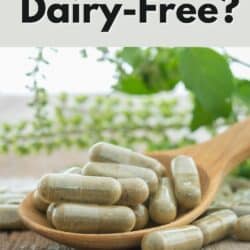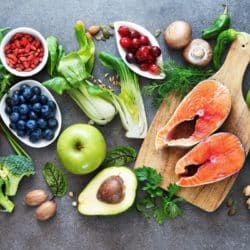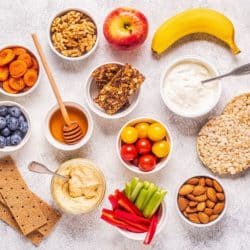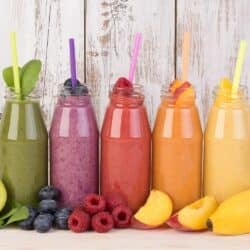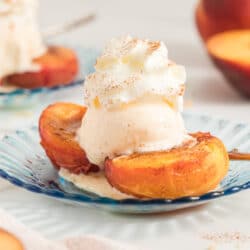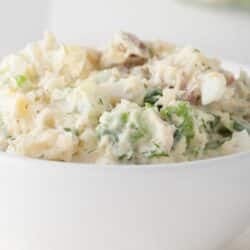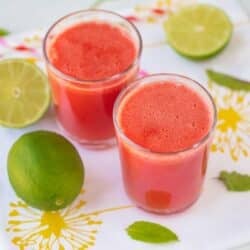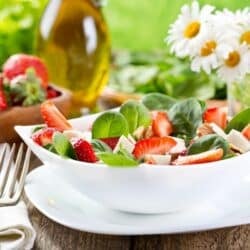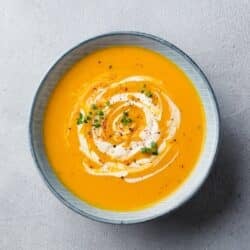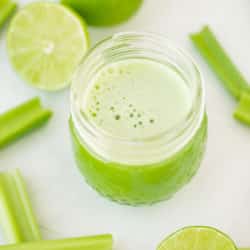Are Probiotics Dairy-Free?
If you want to improve your gut health, it’s often recommended to take probiotics. But, if you are vegan or dairy-free, you may be wondering if all probiotics are dairy-free. This article shares how to know if your probiotics are dairy-free.
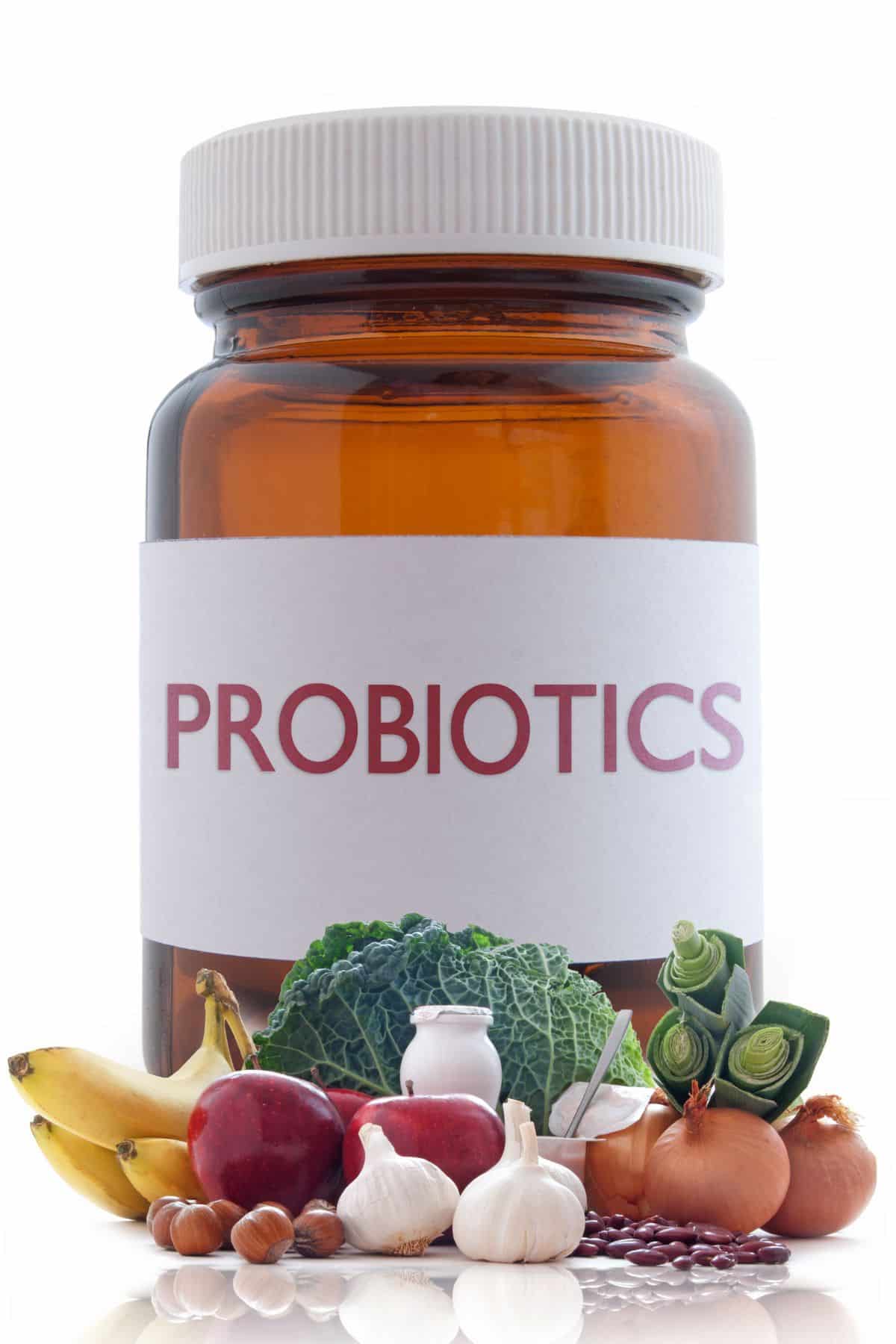
Overview of probiotic supplements
The word “pro biotic” is derived from the Greek term “pro bios”, which translates to “for life”.
Probiotics are live yeasts and bacteria – and, as their name implies, they are considered beneficial to your health and digestive tract when taken in the appropriate amounts.
Although they are already present in your gut, their balance can be affected by factors like illness, or by taking certain medication (particularly antibiotics). In these situations, consuming additional probiotics can be helpful, restoring the proper balance and promoting overall health.
Commonly described as “good” or “friendly” bacteria, probiotics occur naturally in some foods and may be added to others during processing. They can also be taken as food supplements.
There are many claims made about their health benefits, some supported by science. They can be helpful in controlling diarrhea, relieving the symptoms of IBS (inflammatory bowel disease), and may even offer protection against cancer.
Other claims – including those that probiotics and good bacteria can help relieve the symptoms of eczema or help prevent the common cold – have little evidence to support them and seem to be more anecdotal in nature.
But since probiotics appear to be safe for most people with strong immune systems, then there’s generally no harm in giving these supplements a try to see if they work for you.
Probiotic supplements are measured in CFUs. CFU stands for colony-forming units and tells you just how many bacteria you are receiving with every dose. In general, the CFU number needs to be high in order for you to receive any real benefits.
However, the exact amount you need depends on both the type of probiotics you use and the reasons you are taking them. Your particular needs will also determine whether the type you choose should be single or multi-strain.
For that reason, it’s a good idea to discuss your requirements with a healthcare professional before choosing any probiotics or dietary supplements.
How dairy is used in probiotic supplements
Probiotics themselves most often do not contain any dairy – they are simply made from live yeasts and bacteria that occur naturally in some foods and in our digestive tracts.
However, these live microorganisms need to be combined with other ingredients in order for us to take them. There is simply no other way to deliver them to our gut and intestines.
This means that probiotic supplements contain a combination of probiotics, along with various fillers, binders, and coatings. In many cases, these additional ingredients can be derived from dairy, the most common being the milk sugar lactose. These should be listed on the label as “inactive ingredients”.
Another issue is that probiotic strains are grown on – then removed from – a medium, sometimes dairy.
The probiotics don’t take on any properties of the medium on which they are grown, so probiotics shouldn’t cause problems for people who have difficulty digesting dairy or who have lactose intolerance.
But the issue of cross-contamination remains.
This means that you may need to avoid certain probiotic supplements if you are following a vegan diet or even if you have a severe dairy allergy. You should check on the manufacturing methods used with any products you choose unless they are specifically described as vegan-friendly.
You will also find that many foods with added probiotics are, in fact, dairy-based. Indeed, probiotics tend to be added to more dairy products than foods in any other industry sector, from sour or fermented milk and yogurt to cheese and even infant formula.
These are sometimes added to increase health benefits, but may also be vital to their production (for example, probiotics are used as a starter culture to make yogurt).
However, it is possible to develop live bacteria strains from vegan sources. This means that dairy-free probiotic supplements, foods, and drinks are now widely available.
See my related article on the benefits of a dairy-free diet.
Dairy-free probiotic foods
In addition to enhancing the probiotic bacteria in your gut with supplements, you can focus on consuming dairy-free probiotic foods.
And, you have lots of tasty options to choose from!
1. Yogurt and kefir
Look for dairy-free varieties of both yogurt and kefir, made with coconut milk, almond milk, soy milk or other dairy-free alternatives.
These naturally contain some probiotics and can be fortified with additional beneficial bacteria in the same way as dairy products.
Probiotic drinks are very popular now and can be found in the refrigerator section of your local grocery store.

2. Sauerkraut
This dish is made by fermenting finely sliced cabbage in brine, with the Lactobacillus bacteria on the leaves converting the sugars into lactic acid. Rich in probiotics, sauerkraut is also a great source of vitamins and minerals.
It has a crunchy texture and a sour taste, making it a great addition to sandwiches, salads, soups, and bratwurst.
Choose an unpasteurized variety where available, as the pasteurization process destroys some of the useful bacteria. Alternatively, make your own! There are lots of recipes available online.
3. Kimchi
This is another fermented cabbage dish, although it often contains additional vegetables along with healthy ingredients like garlic. Occasionally, it can contain seafood or fish sauce, so it’s important to check the label if you are following a vegan diet.
Kimchi is an excellent source of probiotics, vitamins, and antioxidants.
Spicier than sauerkraut, it is popular in Korean cuisine, where it is served as a side dish with pretty much every meal!
Try it alone, or add it to your stir-fries or fried rice.

4. Miso
Dairy-free and ideal for vegans, miso paste is a savory fermented soybean paste. It is incredibly healthy, rich in vitamins (especially B vitamins), and a wonderful source of friendly bacteria.
It can take some experimentation to find the variety you prefer, as there are so many different kinds available! Salty and with a wonderful umami flavor, the exact taste depends on factors like ingredients, fermentation times, and fermentation conditions.
For a sweeter flavor, look for white or light miso. This undergoes a shorter fermentation time, so it retains more sugar. If you want a more robust and salty flavor, opt for red miso instead.
And, believe it or not, but you can also find soy-free brands of miso.
Use it for stir-fry sauces, marinades, salad dressings, or miso soup. Prepare miso soup with warm water rather than hot in order to preserve as many beneficial bacteria as possible.
5. Tempeh
Nutty, salty, and with a rich umami flavor, tempeh is made from fermented soybeans. It has a firm texture and – along with probiotics – is a great source of protein, B vitamins, minerals, and iron.
The texture of tempeh makes it very versatile and it is a popular alternative to bacon for those following a meat-free or plant-based diet. You can also eat it in salads, stir-fries, or sandwiches.
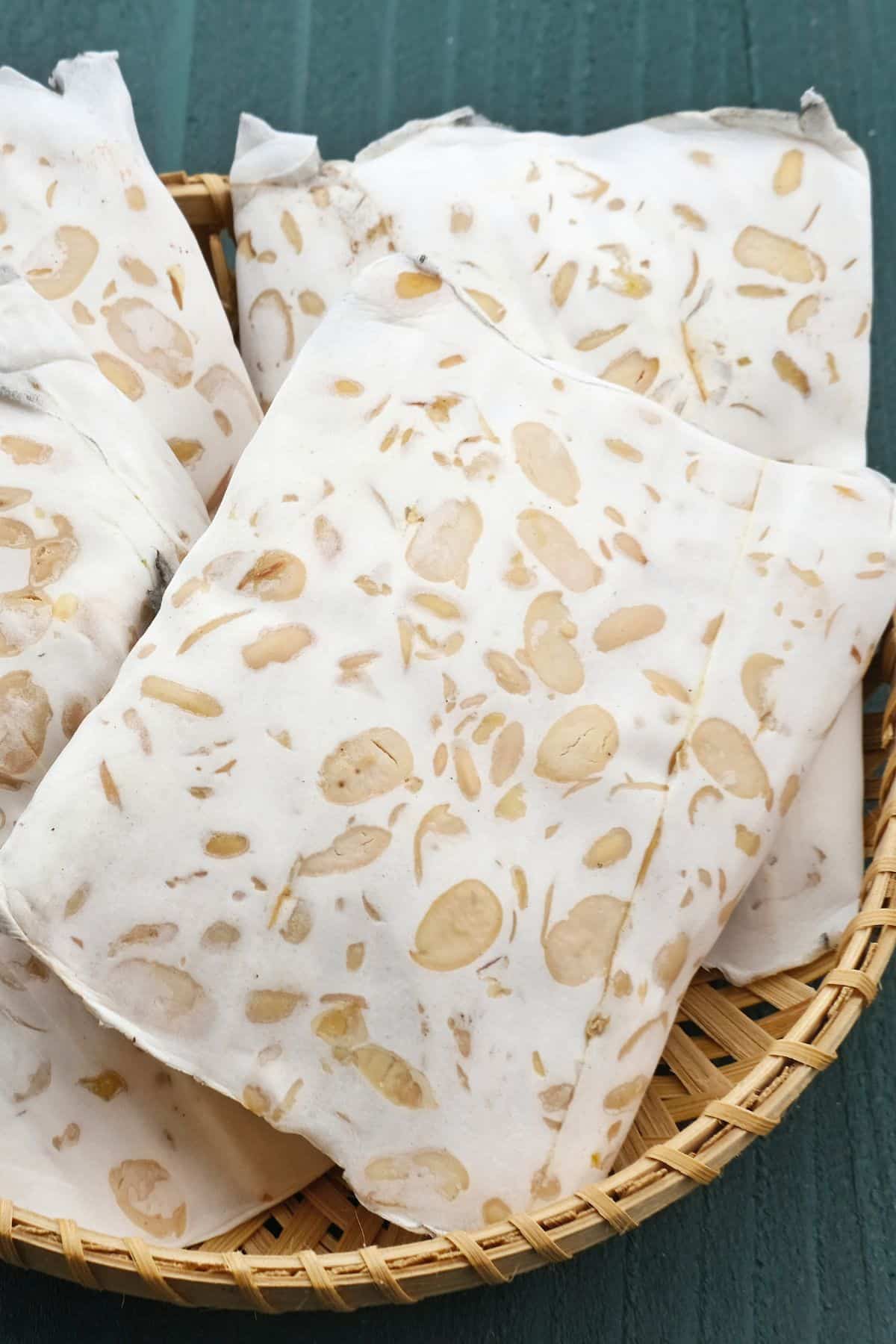
6. Pickles
As with sauerkraut and kimchi, pickling vegetables in brine creates a dish rich in dairy-free probiotics. Whilst most vegetables can be successfully fermented, popular choices include carrots, cucumbers, cauliflower, green beans, and red bell peppers.
Extra seasonings and flavorings are often added too, including garlic, peppercorns, coriander seeds, and bay leaves.
Be careful when choosing store-bought pickled vegetables. You need the lacto-fermented variety, not those that contain vinegar in the brine. This is because vinegar destroys helpful bacteria.
7. Sourdough bread
In order to be beneficial, sourdough bread should be made with a sourdough starter – a flour and water combination that has been fermented for a few days.
Many store-bought varieties of sourdough bread are not made in this traditional way and won’t offer the same health benefits – so check the labels carefully.
As its name suggests, sourdough bread has a pleasantly sour flavor and can be used in place of regular bread.
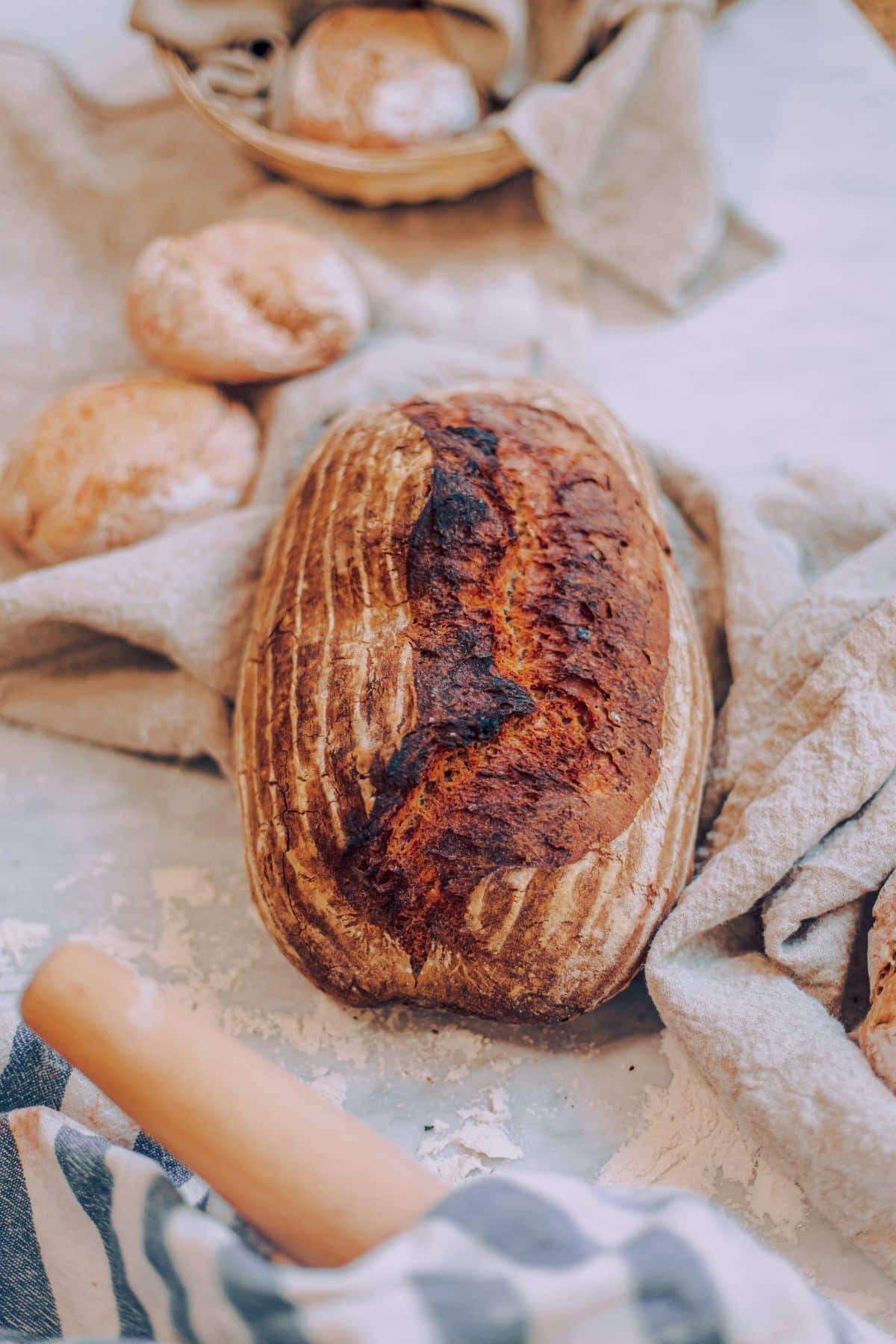
8. Kombucha
This fermented tea is made with a starter composed of bacteria and yeast. The result is a sometimes potent brew that can contain enough alcohol to be classified as beer. For that reason, it may not be suitable if you are pregnant or breastfeeding.
Commonly known as “booch”, kombucha is effervescent and has a sweetish, mildly acidic flavor. You can make it at home with special kits, or buy brewed kombucha in grocery stores.
Best Dairy-Free Probiotics
Probiotic supplements are essentially tablets containing dormant probiotic cultures.
The strains they contain – along with the amounts – will differ from brand to brand, so remember to discuss your dosage with your healthcare provider.
You’ll also want to make sure the brand you choose in made in a vegetarian capsule, especially if you are avoiding any animal products.
1. Garden of Life Dr. Formulated Probiotics Once Daily
Also suitable for gluten-free and vegetarian diets, this dairy-free probiotic provides 30 billion CFU and 14 probiotic strains.
These include Lactobacillus acidophilus and Bifidobacterium (Bifidobacteria), ideal for supporting your digestive system.
It also contains organic potato and organic acacia prebiotic fiber to replenish the healthy bacteria in your gut.
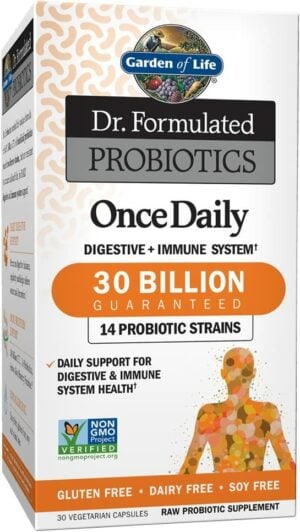
2. Klaire Labs Ther-Biotic Complete
With a bacteria count of 25 billion CFU per capsule, this hypoallergenic daily supplement comes from a company with a respected reputation in the field.
Made with a base of chicory-derived prebiotic inulin, it is non-Gmo and contains no artificial colors, flavors, or preservatives.
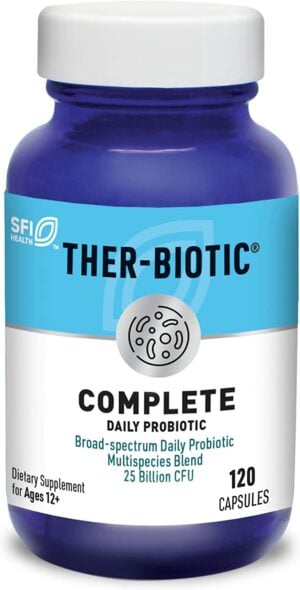
3. GoodBelly® Probiotic Supplement for Digestive Support & Iron Deficiency
From a company better known for its probiotic juices and shots, this supplement includes 10 billion live and active cultures of the super strain LP299V ( Lactobacillus plantarum) probiotic.
Dairy-free, vegan, and free from gluten and soy, it not only supports digestive health but also promotes the absorption of iron in the gut.
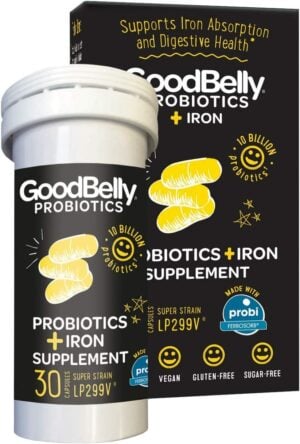
4. Ora Organic Probiotics with Prebiotics
Developed in plant-based cultures, this supplement is certified organic and free from gluten, dairy, GMOs, and soy.
The prebiotics are contained in easy-to-swallow vegan pullulan capsules and organic prebiotics from Jerusalem artichoke are also included, helping the beneficial bacteria to thrive.
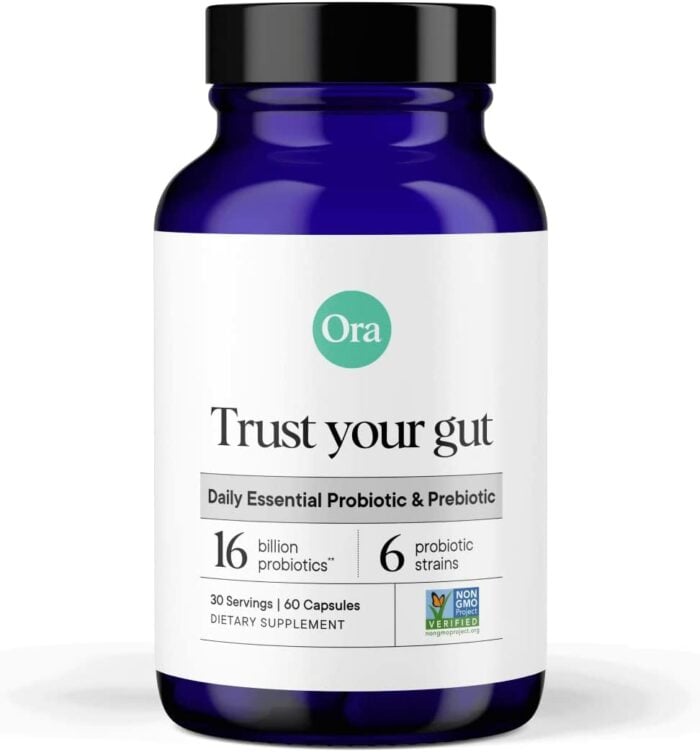
FAQs About Probiotics
Check the list above for some great options that will fit a vegan and dairy-free diet.
Most pickles have not gone through the fermentation process with live bacteria. So, most pickles cannot be considered a source of probiotics unless they are marketed as having “live, beneficial bacteria.”
More Resources to Consider
Conclusions
It used to be very difficult to find good sources of dairy-free probiotics, but that has all changed.
The rising popularity of dairy-free probiotic foods and the development of dairy-free supplements has meant that these options are now much more widely available.
This is good news if you need to avoid dairy for whatever reason, making it easy to support your digestive system and subsequently improve your overall health and well-being.
Don’t forget to join my newsletter list to get exclusive clean eating recipes and tips. The newsletter is 100% free with no spam; unsubscribe anytime.
Note: this post is for informational purposes only and is not intended as medical advice. Please consult your healthcare provider for recommendations related to your individual situation.


